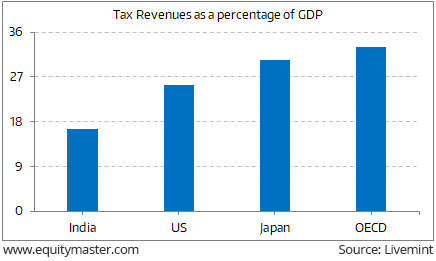- Home
- Todays Market
- Indian Stock Market News August 1, 2017
Indian Indices Trade on a Flat Note; Auto Stocks Witness Buying Tue, 1 Aug 11:30 am
Share markets in India are presently trading marginally lower. Sectoral indices are trading on a mixed note with stocks in the auto sector and metal sector witnessing maximum buying interest. Capital goods stocks and consumer durables sector are trading in the red.
The BSE Sensex is trading down 23 points (down 0.1%) and the NSE Nifty is trading down by 2 points (down 0.02%). The BSE Mid Cap index is trading up by 0.5%, while the BSE Small Cap index is trading flat. The rupee is trading at 64.10 to the US$.
As per an article in the Economic Times, India's infrastructure growth slowed to a 19-month low in June.
As per the data, reduced output of cement, electricity and coal slowed the pace of expansion of the country's eight infrastructure sectors in June to 0.4%. The core sector had expanded 4.1% in May and 7% in June last year, indicating that high base of last year has also muted the growth.
The above muted growth in core sector could further dent industrial growth that was placed at 1.7% in May.
Speaking of infrastructure sector, India over the past decade and more has been grappling with the twin problems of project delays and cost overruns. Execution delays are believed to be long held pain points for the economy.
However, there has been some good news in this regard of late. It's the decline in infrastructure project delays. The share of projects facing implementation delays almost halved since 2013.
Primary reasons for cost escalation was driven by high land acquisition costs, changes in scope of projects, time overrun etc. Time overrun, in turn was due to delay in land acquisition and obtaining environment clearances, lack of infrastructure support and project financing delays.
The Modi led government has implemented various policies since 2014 to tackle these issues and expedited removal of bottlenecks and approval delays. And this is showing results.
Increased focus on public spending on projects and completion of stalled projects has resulted in a steady rate of improvement in ongoing projects. And increased efficiency in project implementation augurs well for the economy. It will help India reign in the twin problems of project delays and cost overruns.
In the news from GST space, the collection of Integrated Goods and Services Tax (iGST) from imports crossed Rs 200 billion in July - the first month of the roll out of the new indirect tax regime.
Total customs revenues in July 2017 stood at Rs 265 billion as against Rs 166 billion collected in July 2016.
This points towards a major jump in tax revenues and augurs well for the economy.
On the corporate earnings front, the GST implementation is said to impact near term earnings of the companies. However, over a long run, the market expectations are that earnings would normalize. In addition, GST is expected to be a big support to the depressed earnings of the organised listed Indian companies in the long run.
If one has to dig a little deeper, there also are some interesting changes visible on the economic front. According to an article by Livemint, the number of registered tax payers under GST till date is set to exceed those in the previous indirect tax regime of value-added-tax etc. Reportedly, around 7.95 million applicants have sought GST registration. That is 99.3% of the 8 million tax base under the earlier system comprising of assesses of state value-added tax (VAT), service tax and central excise duty. This will further boost India's tax revenues, as can be seen from the chart below:
India's Tax Revenues to Get a GST Boost
The implications of the above increase in tax compliance and widening tax base will be a big positive for the economy as well as the government. As we stated in a recent edition of The 5 Minute WrapUp...
- Implications of this increase in tax compliance and widening of tax base is clear. India's tax revenues will get a much needed boost in the coming future. This augurs well for the country that has one of the lowest tax revenue as a percentage of GDP compared with other countries. We believe this higher tax revenue receipt will help bolster the country's financials and also provide further ammunition for the government to spend on social welfare and providing additional infrastructure to its citizens. A wider tax base will also allow the government to lower its tax rates in future.
However, GST is a complicated topic, the exact implications of which will be obvious over next few years. Our colleague Vivek Kaul has studied the finer aspects of the GST and predicted what could go right and wrong.
To know more, download his special report - The Good, the Sad and the Terrible (GST)
For information on how to pick stocks that have the potential to deliver big returns, download our special report now!
Read the latest Market Commentary



Equitymaster requests your view! Post a comment on "Indian Indices Trade on a Flat Note; Auto Stocks Witness Buying". Click here!
Comments are moderated by Equitymaster, in accordance with the Terms of Use, and may not appear
on this article until they have been reviewed and deemed appropriate for posting.
In the meantime, you may want to share this article with your friends!